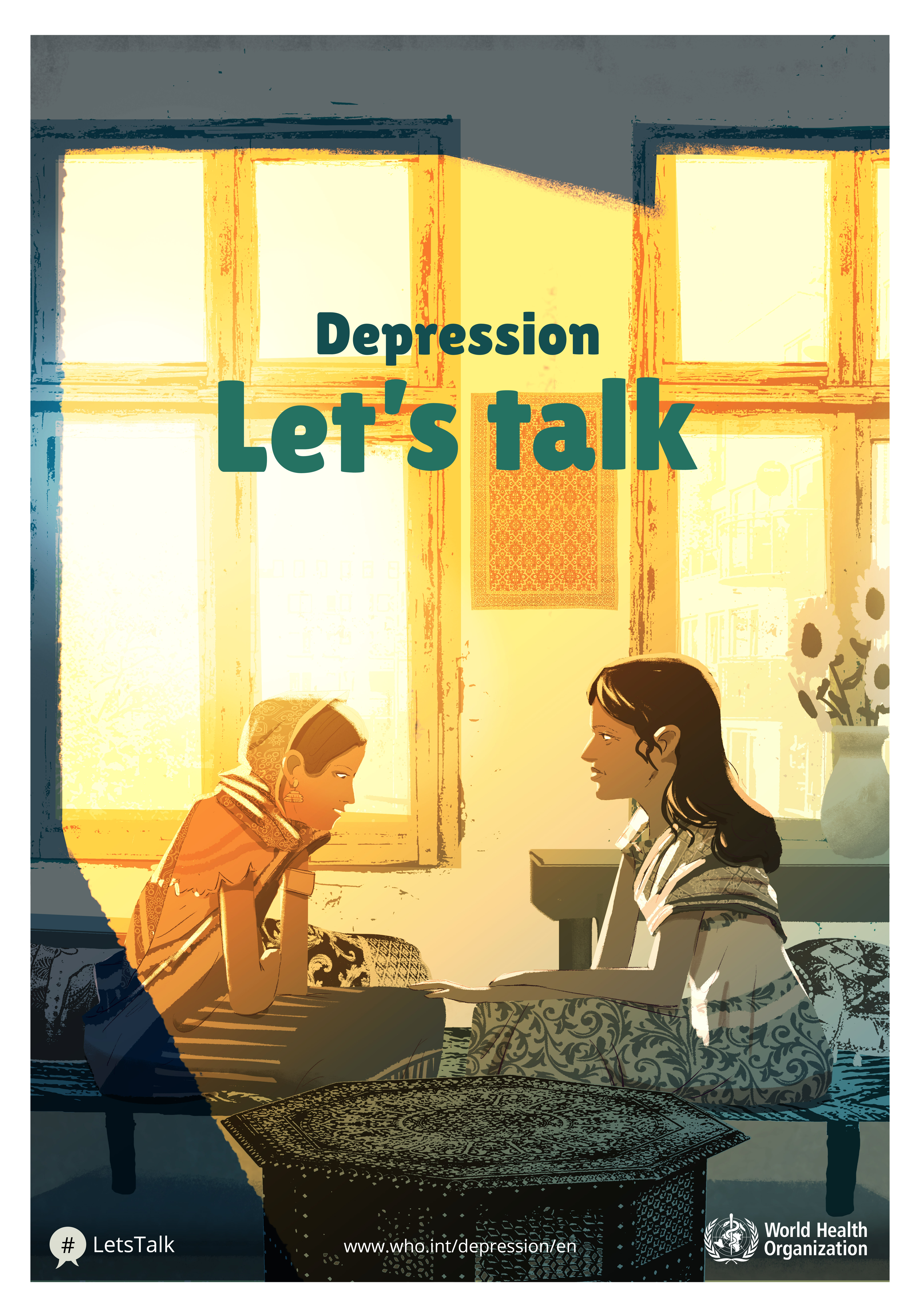**PLEASE CONSULT WITH YOUR DOCTOR, OR OTHER QUALIFIED HEALTH CARE PROFESSIONAL BEFORE USING ANY PRODUCT OR TREATMENT DISCUSSED WITHIN THIS WEBSITE.
Author: Arun Raghav
The cut-throat competition, emergence of new diseases, limited access to health services and the busy lifestyles are taking a huge toll on our human health and well-being. There are alarming number of people who are becoming victims of new diseases and various epidemics are spreading in various parts of the world.
In order to coordinate the health programs and activities across various countries, World Health Day is celebrated across the globe on 7th April every year to bring awareness among people through the initiative of World Health Organization (WHO). Since, the global health monitoring body started celebrating World Health Day from the year 1950, it has regularly focused on various health issues like Polio, better medical conditions, improved motherhood care, road safety, healthy heart, safe food items, diabetes and other such pressing health problems.
Global and Indian statistics regarding mental illness
The global apex body has decided to celebrate the upcoming 2017 World Health Day with its global theme centred on Depression. This mental illness has become a serious problem these days and as per the latest WHO report of 2017, more than 300 million around the world are suffering from the depression due to the increased pressure in personal and professional lives. When it comes to the Indian perspective, around 60 million Indians are found be suffering from mental disorders which is more than the population of countries like South Africa as per the study in September, 2016.
Apart from this, around 10-20 million Indians which forms the 1-2 percent of the whole population is affected from the severe mental disorders such as schizophrenia and bipolar disorder. Additionally, around 5 percent of the Indian population (roughly 50 million) is suffering from common mental disorders like depression and anxiety by the end of year 2005 according to the statistics of Health and Family Welfare Minister J.P. Nadda during a statement in Lok Sabha in May, 2016. However, inspite of these alarming figures, India spends only 0.06 percent of its health budget on mental health care which is even lower than the spending of countries like Bangladesh (0.44 percent).
What is Depression and why is it a matter of concern?
Although, depression is a common mental illness which is associated with a state of low mood and aversion to any type of activity. The problem affects the person’s thoughts, behaviour, feelings and sense of well-being to a great extent. The condition makes a person experience a wide range of emotions like sadness, anxiety, hopelessness, worthlessness, guilt feeling, irritation, anger, restlessness and other such feelings.
The problem needs the immediate attention of the people around and the proper medical treatment as it could lead to the situation of self-injury, self-harm, disability and even suicide if not handled properly.
Causes of depression
Depression, a form of mental illness occurs due to a variety of reasons that are a result of imbalance in our personal, professional and social life. Some of the factors or causes responsible for the depression are mentioned below:
- Loneliness and isolation
- Not getting social support
- Recent occurrence of stressful events and life experiences
- Family history of depression
- Problems in marital, love life or friendships
- Financial strain
- Instances of early childhood trauma or abuses
- Alcohol or drug abuse
- Professional failures like unemployment or underemployment
- Health problems or chronic pain
Types of depression, their symptoms and treatment
This mental illness is classified into a number of forms and types which have their own symptoms. Let us take a one by one account of the same as discussed below:
Major Depression– This type of depression is much common than the mild or the moderate form of depression which continues for most of the days in a week or even more than 2 weeks or for a longer time period.
Symptoms
– Loss of interest or pleasure in performing any activity
– Sudden weight gain or loss
– Loss of sleep or feeling sleepy during the day
– Feelings of restlessness and agitation with slowed down physical or mental activity
– Tiredness or feeling fatigued throughout the day
– Being absorbed in the feeling of worthlessness or guilty
– Problem in concentration building or decision making
– Suicidal thoughts
Prevention
– Antidepressants medications and mental relaxation therapies
– Electroconvulsive therapy (ECT)
– Repetitive transcranial magnetic stimulation (rTMS)
Persistent Depressive Disorder– If the depression you are facing lasts for a time duration more than 2 years, it is known as persistent depressive disorder. The terminology is used to refer two conditions mainly dysthymia (low-grade persistent depression) and chronic major depression.
SymptomsÂ
– Change in the eating patterns and behaviour such as lack of appetite, overeating or irregular eating, etc
– Disturbance in sleeping patterns and frequency such as lack of sleep or sleeping too much
– Feeling fatigued or lack of energy
– Low self-esteem and respect
– Trouble in concentration or decision making.
– Feeling of hopelessness
Prevention
Take the help of psychotherapy, medication or if required the combination of both for effective treatment.
Bipolar disorder– A person suffering from the bipolar disorder also known as “manic depression” has variety of mood expressions ranging from “extreme high” to a “low depressive” one.
Symptoms- The common symptoms of this type of disorder are:
– Elevated or irritating mood swings
– Over activity
– Pressure of speech
– Inflated level of self esteem
– Decreased need for sleep
Treatment
– Mood stabilizer medication such as lithium and psychotherapy
– FDA approved drugs such as Seroquel, Latuda, Olanzapine-fluoxetine combination
– Other drugs such as the anticonvulsant lamotrigine, atypical antipsychotic Vraylar, etc
Seasonal Affective Disorder– It is a period of major depression that most commonly occurs during the winter months when the days become short and the individual gets less sunlight. It typically goes away in the spring and summer seasons due to the availability of maximum sunlight. Around 1 to 2 percent of the global population comprising of the women and young people are affected by this disorder.
Symptoms–
– It makes the person hopeless, sad, tensed, having little interest in friends/activities and stressed during winters which is not the case in summers.
TreatmentÂ
– Use of antidepressants and light therapy
Psychotic Depression– Person affected with this type of depression experiences a variety of symptoms related to major depression which are described below:
– Hallucinations experiences where people see or hear things that are not happening normally
– Delusions (False beliefs)
– Paranoia (A wrong belief where person thinks other people are going to harm him)
Treatment
– Combination of antidepressant and antipsychotic drugs
– Use of ECT therapy
Peripartum (Postpartum) Depression- This type of depression is observed in women who experience major depression in the weeks and months after childbirth.
Treatment
Taking help of antidepressant drugs can help in this situation.
Premenstrual Dysphoric Disorder (PMDD)– Women suffering from PMDD have depression and other symptoms during the starting of their menstrual cycle.
Symptoms- Some of the common symptoms that fall under this category are as follows:
– Mood swings
– Irritation in behaviour
– Anxiety and trouble in concentration
– Fatigue
– Change in the appetite and sleeping habits
– Feelings of being overwhelmed
Treatment
Use of antidepressant medications and oral contraceptives can treat this type of depression disorder.
Situational Depression- This type of depression occurs when the person is experiencing problems in managing the stressful event such as a death of a loved one, a divorce, termination from the job and other such factors.
Treatment
It can be treated with the help of psychotherapy.
Atypical Depression– This type of depression is different from the persistent sadness of typical depression with specific symptoms. The occurrence of a positive event can improve the mood on a temporary basis which can help in treating the atypical depression.
Symptoms- Below are some of the symptoms of this disorder which are:
– Increased appetite
– Feeling of heaviness in arms and legs
– Oversensitive to criticism
– Excessive sleeping
– Weight gain
Treatment
Use of antidepressants such as SSRI (Selective Serotonin Reuptake Inhibitor) is administered as the first line treatment. Another antidepressant such as MAOI (monoamine oxidase inhibitor) which is also used in the treatment of atypical depression.
Notable celebrities around the world who fought with depression
Depression is a common mental illness and it has nothing to do with the physique, beauty, financial condition, professional success and other conditions as it can occur to anyone. Some of the notable celebrities that fought against the depression are:
- John Adams- 2nd President of the United States and founding father
- Buzz Aldrin- American astronaut and the second man to set foot on man
- Woody Allen- Acclaimed American film director and comedian
- Deepika Padukone- Bollywood Actress
- Julian Assange- Australian publisher, editor and founder of WikiLeaks
- Christian Bale- British actor known for portraying Batman in the Dark Knight series
- Amitabh Bachchan- Mega Bollywood Superstar and son of famous poet Shri Harivansh Rai Bachchan
- Diana- Princess of Wales and late wife of Prince Charles
- Dilip Kumar- Bollywood Actor better known as “Tragedy King”
- Charles Dickens- British writer
- Angelina Jolie- American actress, producer and director
- Issac Newton- British physicist
- Shah Rukh Khan- Renowned Bollywood Actor who is also known as “King Khan” and a lot more
So, it should be noted that depression is a form of mental illness and it is completely curable. We should treat the patients of such illnesses with a little compassion and provide them mental support so that they can emerge winner out of this. On this World Health Day, let us pledge together to eradicate this mental illness and make people around us more cheerful and livelier than before.
You May Also Like:-
A Dozen Sachin Facts To Know on His Birthday
Unleash The Power of Bach Flower Therapy







